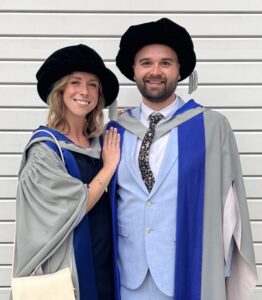Article Summary by Alice Chesterfield and Jordan Harvey
Despite much controversy, the functional-organic distinction attempts to distinguish symptoms, signs, and syndromes that can be explained by diagnosable biological changes (‘organic’) from those that cannot (‘functional’). It appears across medicine but has particular relevance in neuropsychiatric settings where it is often central to treatment decisions and service organisation.
Past research has shown that clinicians disagree about the conceptual basis of the distinction and there are numerous medical problems where attributing causation to ‘functional’ or ‘organic’ factors is an ambiguous process.
Consequently, we completed a qualitative study with psychiatrists, psychologists and neurologists working in relevant services to understand how they made sense of the distinction in their clinical work.
Clinicians in the study understood ‘organic’ factors as having clear, physical causes which could be identified by unambiguous medical tests while ‘functional’ factors were often invisible and to be hypothesised through thinking and conversation. Both are caricatures of complex causal mechanisms in neuropsychiatry but seem to act as exemplars.
In practice, clinicians reported that contextual factors, like cultural assumptions, service demands, patient needs and colleagues’ views were key in how the distinction was deployed. Although the distinction was seen as imperfect and sometimes scientifically unsustainable, physicians reported using it strategically to explain medical problems, coordinate care, address stigma, and give patients access to a sense of identity related to their condition.
Clinicians felt themselves constantly managing the tension between the conceptual coherence of the distinction and the practical demands of healthcare, and ambiguity was considered both an obstacle and a benefit in this.
Listen to the author discuss the article below:
Read the full article on the Medical Humanities journal website.
 Dr Alice Chesterfield and Dr Jordan Harvey are both Clinical Psychologists who completed this research as part of their training at University College London and work as practitioners for the UK’s National Health Service.
Dr Alice Chesterfield and Dr Jordan Harvey are both Clinical Psychologists who completed this research as part of their training at University College London and work as practitioners for the UK’s National Health Service.